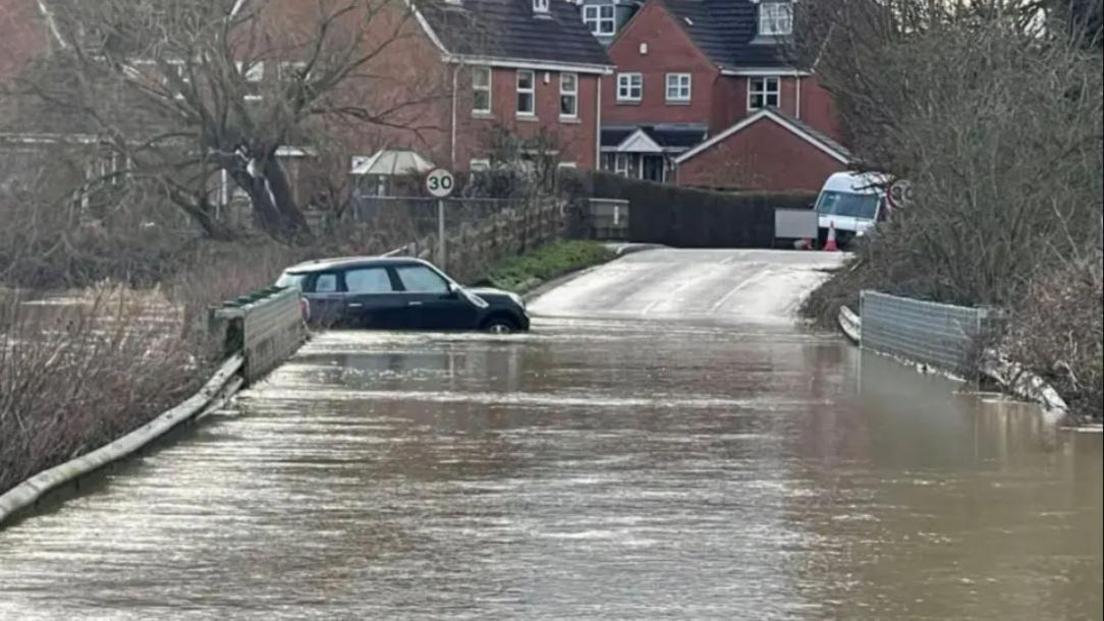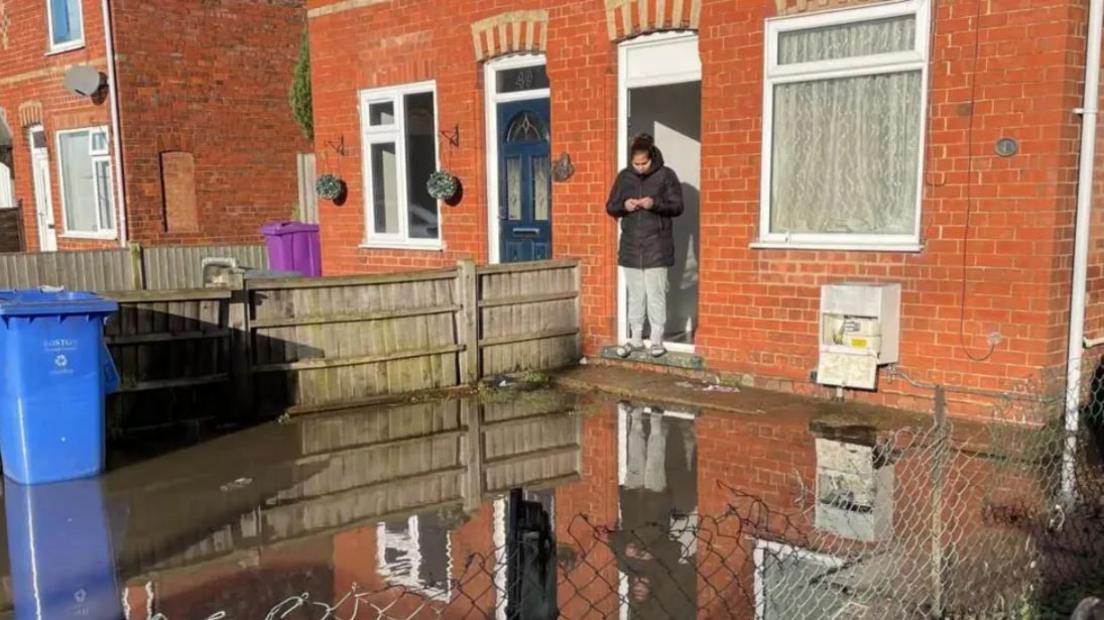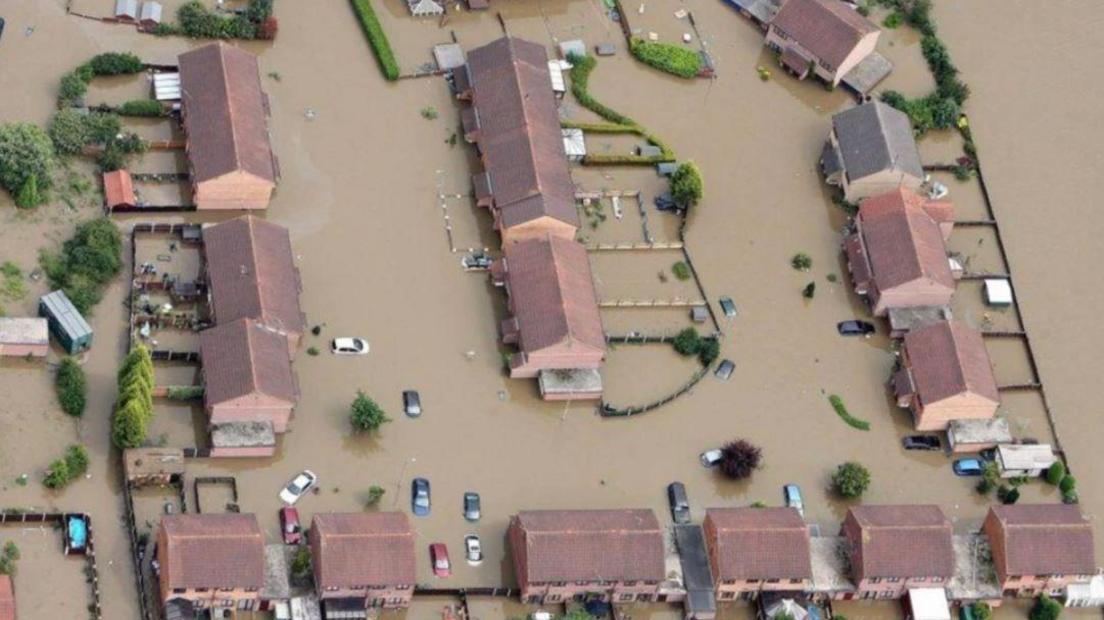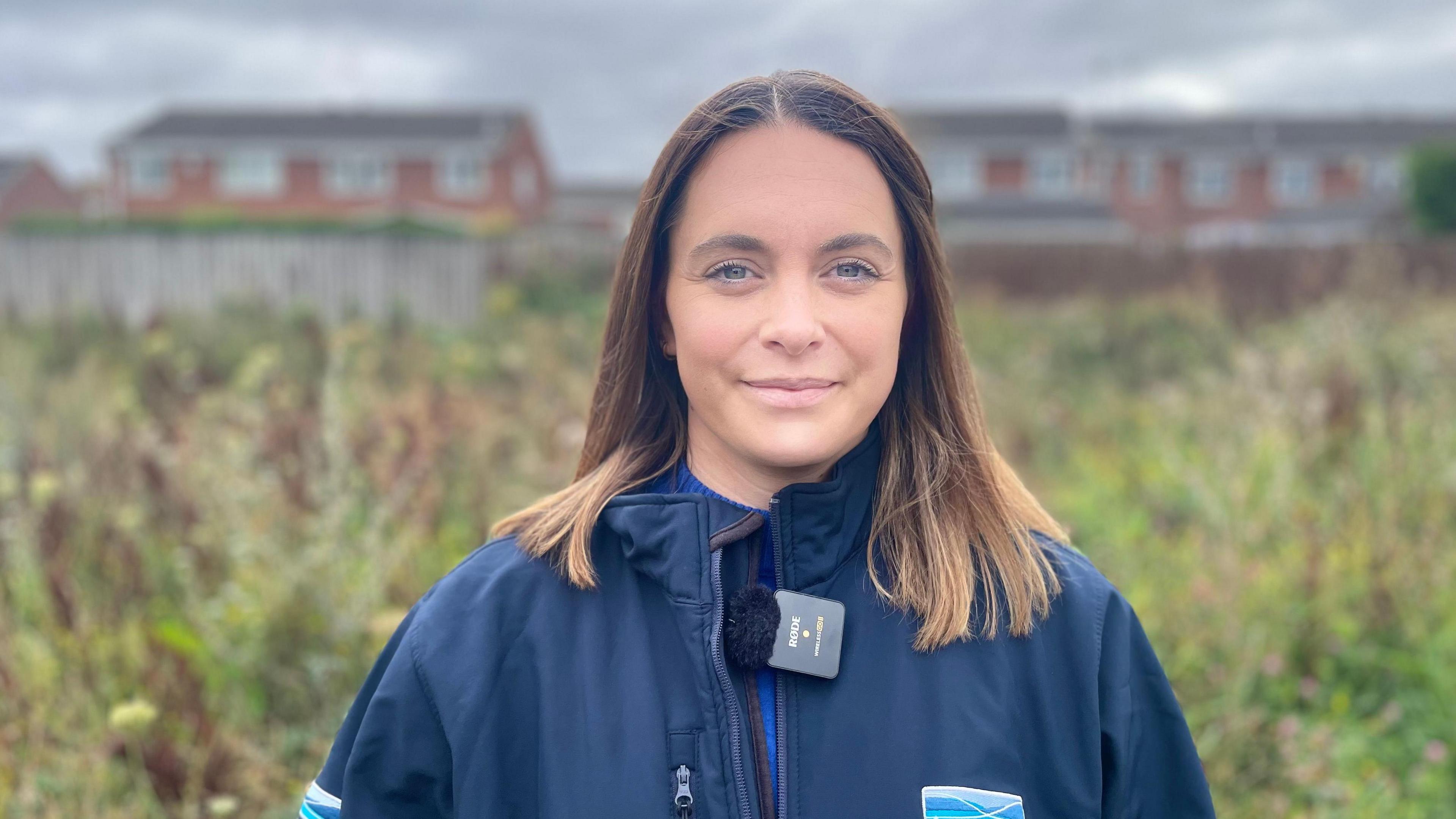Flood risk hotspots named by campaign group

Swathes of Lincolnshire saw flooding in January
- Published
Hull and parts of Lincolnshire are among the areas most at risk of flooding, according to researchers.
Data examined by campaign group Friends of the Earth found more than 90% of homes in Boston and Skegness are in danger of flooding.
Figures also show Hull is among the cities most exposed to flooding, with 75% of homes in the Hull North and Cottingham and Hull East constituencies said to be at risk.
A government spokesperson said it inherited flood defences "in the worst condition on record", but is now taking action to "protect communities from extreme weather".
Friends of the Earth examined the latest data from the government, the National Audit Office, Natural England and the Environment Agency.
It found that millions of people are now living in the shadow of multiple environmental threats in their local areas.

About 40 homes were flooded in Boston after the South Forty Foot Drain overtopped in January
According to the findings, Boston and Skegness - represented by deputy Reform UK leader Richard Tice who has opposed climate action, are the nation's most at risk towns.
In response to this, Tice said: "Yes, my constituency is at risk not from climate change but from poorly managed old flood defences that now need repair and replacement in the next 20 years.
"Because the eco zealots insist on Net Zero, which costs £30bn per annum taxpayers cash and which aims to stop climate change over 200 years, the Environment Agency says it does not have the money to repair old flood defences.
"This is outrageous and [is] why Reform will scrap Net Zero and spend much less money faster on proper flood defences that will protect us now, not in 100 -200 years."
Researchers also found the South Holland and the Deepings constituency has the lowest tree cover in England at 2.2% and more than 70% of homes are at risk of flooding.
The analysis comes ahead of the release of the government's next climate plan, which is due to be published by 29 October.
The carbon budget delivery plan will outline climate policies for the period of 2033 to 2037 to cut net emissions to zero by 2050.

More than 10,000 homes in Hull were affected by flooding in June 2007
Friends of the Earth is calling for the plan to include measures that will reduce household bills, better insulate homes and create green jobs.
The campaign group has also urged the government to do more for nature by taking a zero-tolerance approach to polluters of rivers and coasts.
Mike Childs, head of policy at Friends of the Earth, said: "This data shows the true scale of environmental threats across England and reinforces why a strong climate plan is so important to protect communities.
"Flooded homes, dangerous heatwaves and filthy air are not abstract risks but realities for millions.
"Politicians who push false environmental narratives or call for weaker climate action are putting the people that elected them at risk."
A spokesperson for the Department for Environment, Food and Rural Affairs said: "Having inherited flood defences in the worst condition on record and nature in long term decline, we've begun decisive action to clean up our waters, restore our nature environment and protect communities from extreme weather.
"This includes securing investment to cut sewage spills in half by 2030, build new reservoirs, restore nature at scale and protect more than 900,000 properties from flooding by 2036."
Listen to highlights from Hull and East Yorkshire on BBC Sounds, watch the latest episode of Look North or tell us about a story you think we should be covering here, external.
Listen to highlights from Lincolnshire on BBC Sounds, watch the latest episode of Look North or tell us about a story you think we should be covering here, external.
Download the BBC News app from the App Store, external for iPhone and iPad or Google Play, external for Android devices
Related topics
- Published7 July

- Published7 January

- Published8 January

- Published20 August
